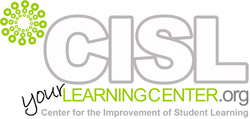The WASCLA Conference brings together participants throughout Washington State to share improvements and progress in working to ensure access to Limited English Proficient individuals.
Who Should Attend?
Those who are interested in language access including interpreters, translators and those providing services in the following areas: domestic violence, sexual assault, crimes such as trafficking, advocacy, law enforcement, housing, health- care, immigration, public benefits, family law, and government services.
Goals for the Summit:
Learn more about LEP policies, interpreter and translator best practices, training for staff on working with interpreters, telephonic interpreting, interpreter and translator certification, reimbursement systems, translation models, and cultural competence. Discuss a statewide database to share interpreter and translator resources. Network with professional interpreters and translators.
Click here for more information.
Wednesday, April 30, 2008
Monday, April 14, 2008
Preventing the Kindergarten Readiness Gap
Dear Education Leaders and Supporters:
As we implement multiple strategies to meet state standards and “leave no child behind,” we cannot ignore the readiness skills of our future students. Forty percent of children walk into kindergarten already one to three years behind. What happens in the early learning years, long before a child enters kindergarten, has a profound impact on his or her future education.
Educators want to get out of the remediation business because it doesn’t work well and it is very costly. Early intervention is a powerful strategy, such as offering READY! for Kindergarten classes for parents and primary caregivers of children birth to age five. The READY! for Kindergarten program focuses on fun family activities that lead to school readiness. Over 50 school districts are benefiting from this approach.
You and your colleagues are invited to attend a one-day seminar presented by the National Children’s Reading Foundation. The attached brochure contains all of the information. Please join us to discover the unexpected research and practical options for narrowing and eliminating the readiness gap before students enter kindergarten.
Click here to learn more or to register now.
From the National Children's Reading Foundation
www.readingfoundation.org
As we implement multiple strategies to meet state standards and “leave no child behind,” we cannot ignore the readiness skills of our future students. Forty percent of children walk into kindergarten already one to three years behind. What happens in the early learning years, long before a child enters kindergarten, has a profound impact on his or her future education.
Educators want to get out of the remediation business because it doesn’t work well and it is very costly. Early intervention is a powerful strategy, such as offering READY! for Kindergarten classes for parents and primary caregivers of children birth to age five. The READY! for Kindergarten program focuses on fun family activities that lead to school readiness. Over 50 school districts are benefiting from this approach.
You and your colleagues are invited to attend a one-day seminar presented by the National Children’s Reading Foundation. The attached brochure contains all of the information. Please join us to discover the unexpected research and practical options for narrowing and eliminating the readiness gap before students enter kindergarten.
Click here to learn more or to register now.
From the National Children's Reading Foundation
www.readingfoundation.org
Celebrating Earth Day at Home
On April 22nd, we join over 100 different countries in celebrating Earth Day. This is an opportunity to appreciate nature and discover ways to protect our environment. At home and in the classroom, it is a great time to learn with our children about our planet and how each of us can contribute to keeping it clean.
Ten Ways to Celebrate Earth Day with your Child:
1. Talk about how her daily choices impact the rest of the world.
2. Participate in local Earth Day celebrations.
3. Decorate your house for Earth Day with homemade crafts.
4. Take a tour of your house. What could you do at home to use less electricity and water?
5. Read about an endangered species.
6. Talk to your child about how to reduce your household garbage. Reduce, reuse, recycle.
7. Join the Environmental Kids Club.
8. Enjoy nature. Go for a walk. Go to a park. Play outside!
9. Plant a tree.
10. Talk about how to stay safe from environmental risks at home.
Ten Ways to Celebrate Earth Day with your Child:
1. Talk about how her daily choices impact the rest of the world.
2. Participate in local Earth Day celebrations.
3. Decorate your house for Earth Day with homemade crafts.
4. Take a tour of your house. What could you do at home to use less electricity and water?
5. Read about an endangered species.
6. Talk to your child about how to reduce your household garbage. Reduce, reuse, recycle.
7. Join the Environmental Kids Club.
8. Enjoy nature. Go for a walk. Go to a park. Play outside!
9. Plant a tree.
10. Talk about how to stay safe from environmental risks at home.
Subscribe to:
Comments (Atom)
.jpg)